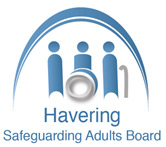Care and support needs
Definition and outcomes of eligibility for the Care Act 2014
The national eligibility criteria set a minimum threshold for adult care and support and carer support. All local authorities must at a minimum meet needs at this level.
The threshold is based on identifying how an individual’s needs affect their ability to achieve relevant desired outcomes, and whether as a consequence this has a significant impact on their wellbeing.
The overall aim of adult care and support is to help people meet their needs to achieve the outcomes that matter to them in their lives and which in turn promote their wellbeing. It is important to distinguish between the two ways in which outcomes are discussed within the Care Act and guidance:
Desired outcomes (of the individual)
These are the outcomes a person wishes to achieve in order to lead their day-to-day life in a way that maintains or improves their wellbeing. They will vary from one person to another because each individual will have different interests, relationships, demands and circumstances within their own life. These are the outcomes that the assessment should focus on.
Eligible outcomes
There is one list for adults with care and support needs and another list for carers with support needs. These outcomes set out the minimum criteria that local authorities must meet in order to comply with the national eligibility threshold for adults needing care and support and carers needing support. These are the outcomes that the eligibility determination should be based on.
What outcomes are listed in the eligibility regulations?
Outcomes for adults with care and support needs
- Managing and maintaining nutrition
- Maintaining personal hygiene
- Managing toilet needs
- Being appropriately clothed
- Being able to make use of the home safely
- Maintaining a habitable home environment
- Developing and maintaining family or other personal relationships
- Accessing and engaging in work, training, education or volunteering
- Making use of necessary facilities or services in the local community, including public transport, and recreational facilities or services
- Carrying out any caring responsibilities the adult has for a child. Outcomes for carers with support needs
- Carrying out any caring responsibilities the carer has for a child
- Providing care to other persons for whom the carer provides care
- Maintaining a habitable home environment in the carer’s home, whether or not this is also the home of the adult needing care
- Managing and maintaining nutrition
- Developing and maintaining family or other personal relationships
- Engaging in work, training, education or volunteering
- Making use of necessary facilities or services in the local community, including recreational facilities or services
- Engaging in recreational activities.
